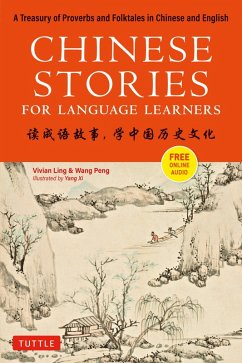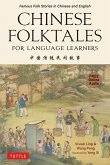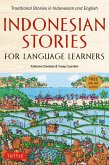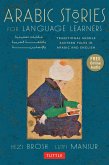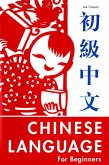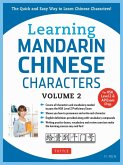The highly anticipated next book in Tuttle's Stories for Language Learners series is here!
This book presents 22 classic Chinese proverbs and the traditional tales behind them. The stories are bilingual, with the Chinese and English versions presented on facing pages. Each includes an explanation of how the proverb is used today, cultural notes, vocabulary and discussion questions. Online audio recordings of the tales by native speakers give students a chance to improve their pronunciation and comprehension.
Some of the proverbs featured in this collection include:
Whether being used in a classroom or for self-study, Chinese Stories for Language Learners provides an educational and entertaining way for intermediate Mandarin learners to expand their vocabulary and understanding of the language.
This book presents 22 classic Chinese proverbs and the traditional tales behind them. The stories are bilingual, with the Chinese and English versions presented on facing pages. Each includes an explanation of how the proverb is used today, cultural notes, vocabulary and discussion questions. Online audio recordings of the tales by native speakers give students a chance to improve their pronunciation and comprehension.
Some of the proverbs featured in this collection include:
- "Painting the Eyes on the Dragon"
Based on the story of a famous court painter in 6th century China who painted dragons, this proverb refers to the finishing touches needed to bring a work of art or literature to life. In a discussion, it refers to the final statements used to clinch the argument. - "Waiting for Rabbits by a Tree Stump"
Based on an ancient folktale about a foolish farmer who sees a rabbit kill itself in front of him by running into a tree stump, then gives up tilling his field to wait for more rabbits by the stump. This saying is applied to people who wait passively for luck to strike again. It also refers to impractical people who stick to one way of doing things only because it has worked for them once in the past. - "Pure Water Has No Fish; Perfect People Have No Friends"
Many versions of this historical tale exist. The one told here is about a 2nd century AD official sent to govern a far-flung outpost on the Silk Road who is fastidious in applying strict rules and thereby causes the local people to rebel against him. In the professional world, it is used to refer to people who do not like to work with an overly strict supervisor or colleague.
Whether being used in a classroom or for self-study, Chinese Stories for Language Learners provides an educational and entertaining way for intermediate Mandarin learners to expand their vocabulary and understanding of the language.
Dieser Download kann aus rechtlichen Gründen nur mit Rechnungsadresse in A, D ausgeliefert werden.

